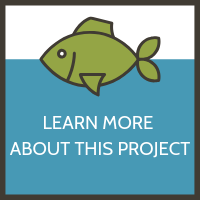
By Kathleen Ragsdale, Mary Read-Wahidi, and Elin Torell
Post-harvest fish loss contributes to a great deal of waste, affecting the livelihoods and food security of those in fishing communities. Understanding the causes of post-harvest fish loss is key to reducing its impact. The open-access customizable Post-Harvest Fish Loss Assessment for Small-Scale Fisheries (PHFLA) is a novel quantitative tool to assess losses quickly and easily among fishers, processors, and fish sellers in the small-scale capture fisheries sector.
The assessment’s development was led by researchers at Mississippi State University and the University of Rhode Island, including Kathleen Ragsdale, Mary Read-Wahidi, and Elin Torell. The PHFLA can be used as a stand-alone measure or included in a larger survey. It was created for the Feed the Future Innovation Lab for Fish-supported project–FishFirst! Zambia, as we wanted a tool to collect quantitative post-harvest loss data to use with the Women’s Empowerment in Fisheries Index (WEFI), a novel quantitative instrument adapted by WorldFish from the original Women’s Empowerment in Agriculture Index (WEAI).
We further modified the WEFI – including adding the PHFLA to the survey – to investigate how gender equity impacts men and women fishery value chain actors at Zambia’s Lake Kariba. We use the survey results to explore, for example, how access to and control over productive assets, such as fishing gear and mobile phones, is similar and different for men and women. In our search for a tool to include in the WEFI to investigate how post-harvest fish loss is similar and different for men and women across value chain nodes, we found that many loss assessments focus on qualitative data, which is labor-intensive to collect and analyze. After brainstorming this challenge, we developed the PHFLA as a brief tool that is quantitative, easy to collect and analyze, open-access, customizable, and suitable as a stand-alone assessment or for inclusion in a larger survey.
The PHFLA allows users to explore post-harvest loss across important small-scale fishery nodes such as at catch, processing, storage, transport, and marketing. It collects data on whether respondents are shore fishers or boat fishers, whether they live in permanent fishing villages or temporary fishing camps, and other important demographics (e.g., gender, age, education level). Equally important, the PHFLA differentiates between “reduced quality” (defined as any portion of a catch that deteriorated in freshness, smell, taste, appearance, color, size, shape, or nutrition) and “total loss” (defined as any portion of a catch that the respondent was unable to sell or eat because it deteriorated in quality or was lost due to theft).
Including the PHFLA in your toolkit will allow you to collect quantitative data on how men and women fishers, processors, and sellers experience post-harvest fish loss similarly and differently and what nodes experience more losses. This level of detailed information is critical to inform technologies, interventions, and programs to mitigate persistent high levels of post-harvest loss across the small-scale fisheries sector. Mitigating such losses will have immediate and long-term impacts on individuals and communities through improved livelihoods, food security, food safety, and nutrition.
The Post-Harvest Fish Loss Assessment for Small-Scale Fisheries (PHFLA) is available here, and a simple users’ guide to accompany the tool is in development.
Kathleen Ragsdale and Mary Read-Wahidi are the Fish Innovation Lab’s gender and youth equity specialists. Ragsdale is a research professor at the Mississippi State University Social Science Research Center. Read-Wahidi is an assistant research professor at the Social Science Research Center. Elin Torell is the Fish Innovation Lab’s deputy director and human outcomes specialist as well as director of international coastal programs, evaluation, livelihoods, and gender at the University of Rhode Island Coastal Resources Center.
Published February 1, 2022

